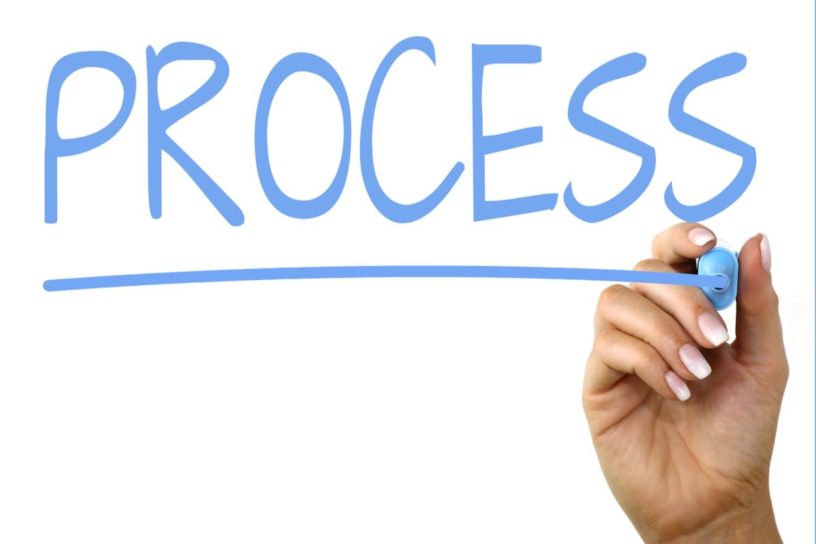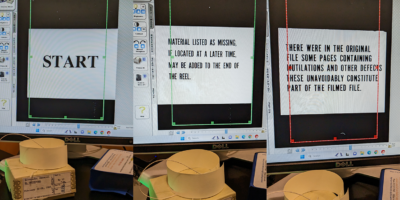By Louis Olander
In my previous post linking Universal Design for Learning (UDL) and Writing Across the Curriculum (WAC), I wrote about the general overlap between the two frameworks: both embrace the challenge of disrupting dynamics of disablement as part of the political process of providing access. As such, they are both central to the mission of CUNY as an urban public university, and can be used in concert to support marginalized students. UDL and WAC both emphasize the process itself over the specific products. Both frameworks see the process of learning as iterative and feedback-driven in ways that are enhanced by the development of community, resulting in a healthy emotional climate in the classroom that enables students’ best work to emerge.
UDL and WAC converge in their focus on quality feedback as an important part of their emphasis on process. For WAC, cycles of generating content and critical feedback build upon each other to refine and focus writing. This means embracing “errors” in grammar, syntax, or word choice as a natural and healthy part of the process of learning to write. Instead of simply eliminating or ignoring errors, WAC encourages instructors to focus on the holistic clarity of expression instead of just on errors. Further, WAC literature describes feedback and revision as equally important to the creative generation (drafting) phase of writing. For example, students might engage with the creative phase of writing by freewriting; then during cycles of feedback and revision unrefined work can turn into more powerful writing.
Similarly, UDL advocates for making space for building fluency over multiple opportunities for practice and performance of skills. In UDL, feedback needs to communicate clear expectations so that students can build mastery over skills over time. In this way, both WAC and UDL encourage the use of rubrics. However, feedback goes further than just communicating how students will be graded. Mastery-oriented feedback also provides students with concrete steps that trace a clear path forward towards success in their work.
Both frameworks further agree that feedback and revision are best experienced in a community of learning. UDL holds that we do not learn alone, but with others—that human interaction is central to the processes of learning, especially for novices. Given the inherent variability in learner abilities and aptitudes, the most powerful work that students create often comes as a result of collaborative efforts, even when finished products are individually developed. WAC similarly understands that writing is not an individual process, but directly linked to communicating ideas to and with others. As such, writing communities support learners by providing forums for generating new ideas and synthesizing concepts before and during the actual practice of putting pen to paper, in addition to creating structures for peer feedback. WAC emphasizes the importance of sharing writing as a way for emerging writers to see or hear how their written words sound to audience. Peer revision supports novice writers by creating communities of learning around which a supportive classroom climate can develop.
Perhaps most importantly, both frameworks recognize that learning to write requires an emotional space that allows for a deeper development of thought. By emphasizing the provision of academic supports available to all students, UDL addresses the problematic, stigmatizing nature of specialized accommodations only for students with identified disabilities. In contrast, by providing universal supports, learning is made accessible to all students, whether they have disability documentation or not. UDL further recognizes that, like weather, emotions are momentary experiences; however, the affective climate of a classroom can tend to the positive with efforts to support students’ emotional engagement. This interdependency of cognition and affect is central to UDL’s conception of how learning happens, with student beliefs about their own capacity to learn cultivated carefully and consciously.
In a similar way, WAC recognizes that emerging writers must have the opportunity to engage their interests in order to create their greatest work. This can mean allowing students to choose the topics of their work when the format is not flexible, or provide flexibility in format when content is not flexible. To return to the idea of freewriting, giving students the opportunity to put words to paper under the premise that it will necessarily be raw and unfinished frees students from the frustration and anxiety associated with trying to create polished writing immediately. In this way, students can balance the tension between reluctance to produce writing and the eagerness to perform well.
Ultimately, many students will continue to struggle to write fluently in a higher education setting without supports, for a range of reasons that include disability as well as under-preparation in K-12 settings. Therefore, they should be taught to use resources available to them over the long-term, including those widely available in word-processing software: spell-checking, speech-to-text, and the use of dictionary and thesaurus, for example. While all of these built-in features can be problematic— over-reliance on a spellchecker or a thesaurus can certainly make student writing less clear—students should develop the ability to reflect on the usefulness of those tools in generating their best work.
Going further, instructors can immediately take concrete actions that allow them to balance conformity to formal modes of expression with promoting critical thinking and authentic expression. Students can set goals for their writing, and engage in self- and peer- assessment. At the same time, instructors should be careful about how they deliver feedback, tying feedback to rubrics that clearly communicate expectations. Ultimately finding this balance will vary widely by content area and how instructors see themselves and their own priorities, but it’s the process that counts for instructors as well as students.
Further Reading
Universal Design for Learning. Meyer, Rose, & Gordon (2014)
Reach Everyone, Teach Everyone. Tobin & Behling (2018)
A Research Reader in Universal Design for Learning. Rappolt-Schlichtmann, Daley, & Rose (2012)
Writing with Power. Elbow (1998)
The Phenomenology of Error. Williams (1981)
Emotional Landscapes of the First Year Student. Holmes, Marchant, & Peterson (1991)
Minimal Marking. Haswell (1983)
Writing Communities. Parks (2016)










Leave a Reply